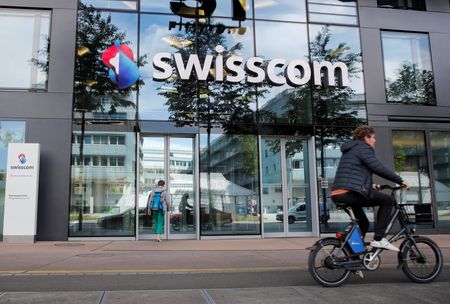By Sarah Young and Andres Gonzalez
LONDON (Reuters) – Thames Water, the British utility that risks running out of cash, faces a crunch week, as the water regulator sets future prices, and a court process begins that should help it to secure a 3 billion pound ($3.80 billion) lifeline.
Regulator Ofwat’s final decision, due on Thursday, is crucial to all Britain’s water companies, but especially to Thames – as it fights to stave off nationalisation.
The company, which has 16 million customers, has become a poster child for Britain’s broken water sector following accusations investors have for decades plundered companies for dividends while neglecting infrastructure and the environment.
Although customers want bill rises minimised, in common with the government, they are also eager for the sector to improve following years of damaging sewage spills.
Two days before Ofwat’s decision, Thames Water’s “convening hearing” at London’s High Court is the first stage of a process to shore up its finances.
The outcome will not be announced until January.
The industry says the regulator Ofwat prioritised low consumer bills, limiting the amount they could raise and invest, and Ofwat will need to balance those demands when it sets the 2025-2030 price determination.
The industry has called for an average bill increase of 40%. Thames Water requested a 53% rise. Ofwat said in its initial ruling in July that it would allow a 21% rise.
‘UNINVESTIBLE’
That increased the pressure on Thames, which was plunged into crisis in March when its owners refused to provide more cash, and called the company with its 17 billion pounds of debt “uninvestible” under current regulatory conditions.
British finance minister Rachel Reeves singled out the water sector in October, saying it needed more investment.
“Regulators have got to be much more aware of the importance of investment in the sector, and for too long I think that they haven’t had sufficient attention to that,” she said.
The industry hopes Ofwat will either allow prices to rise, returns to be higher or penalties to be reduced.
Two investors in the UK water sector told Reuters the regulator had mishandled the sector, while previous governments focused on the need to keep bills low.
Ofwat’s decision will help to determine whether Thames can attract new equity of 3.25 billion pounds, part of a rescue plan that depends on the court approving the debt lifeline.
“We are confident, as confident as you can be, that this transaction will get approved by the court in January,” its finance director Alastair Cochran said on Dec. 10.
Without that approval, Thames Water has said it could run out of cash by March.
But not all creditors are on board. A group of bondholders in the more junior debt creditors are offering a parallel restructuring plan and expect to address the court, according to a source familiar with the group’s plans who asked not to be named.
The government has said it is “closely monitoring” Thames in case it needs to step in with its special administration regime, but its preference is for a market-based solution.
Should the water companies, which include listed companies like Severn Trent and United Utilities as well as Thames Water, strongly object to Ofwat’s price ruling they can challenge it by referring the case to the competition regulator.
($1 = 0.7896 pounds)
(Writing by Sarah Young; editing by Barbara Lewis)











